
STEM Training



“
Equate Scotland make a positive difference for women in science, engineering, technology, and the built environment
The world is rapidly evolving, with more focus than ever on environmental protections, sustainability, and innovation. The Construction sector is gearing up for major change with a particular focus on reducing carbon emissions in order to achieve the net zero carbon targets by 2045.
Equate Scotland in partnership with the Built Environment Smarter Transformation (BE-ST) offered a 3-day blended immersive and practical learning experience on retrofit, Passivhaus, digital construction and modern methods of construction whilst always considering the Fabric First approach.
Pure energy’s Graduate Energy Engineer, Yashodhara Bose was selected for this opportunity, and participated in this upskilling programme at Built Environment Smarter Transformation, Glasgow from 28th August to 30th August, 2023.
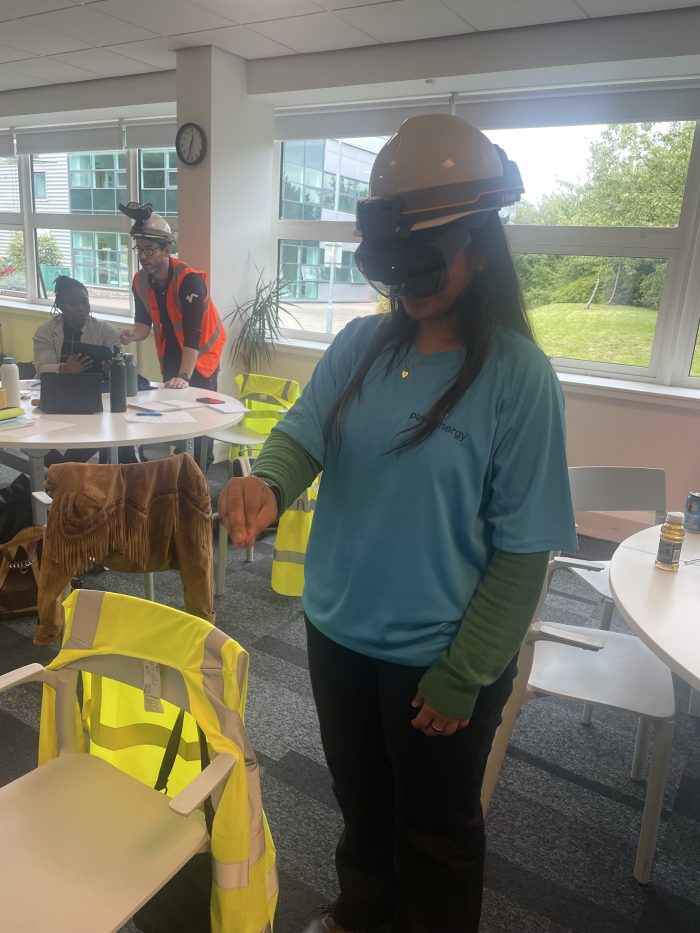
A learner’s account was set up on the BE-ST learning hub portal where the training course delegates were asked to complete three modules, namely, Fabric First construction, Passivhaus in Practice Modules 1 & 2.
These modules laid the foundation for the training programme as it gave a brief overview of the principles of Passivhaus, awareness of retrofit standards, and understanding the concept of digital construction.
Delegates learnt about the different kinds of building construction styles over the years, importance of Fabric First approach and Passivhaus standards.
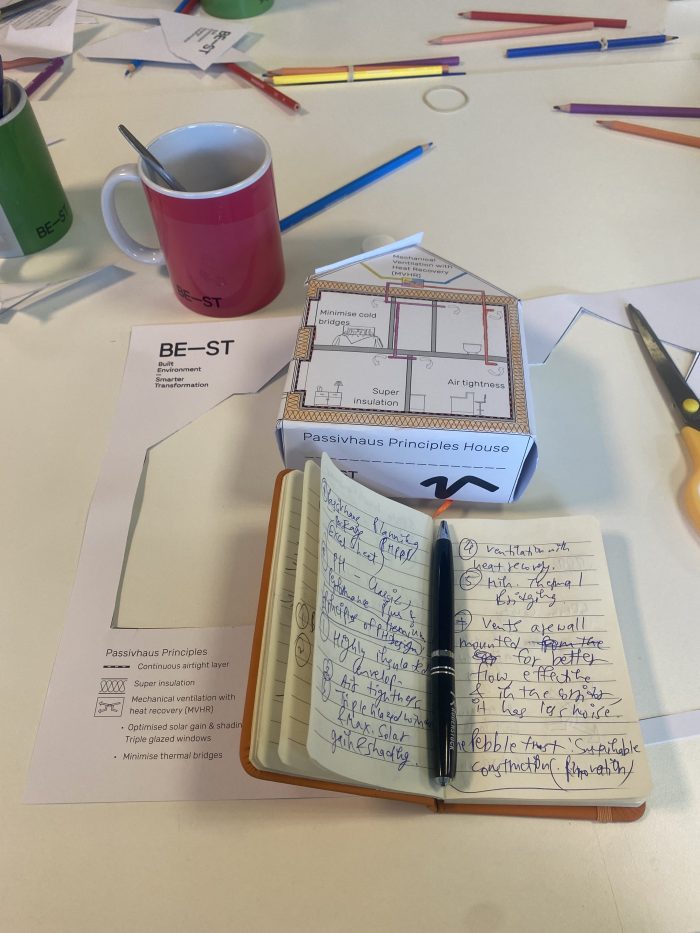
The delegates had a walk around the retrofit and Passivhaus rigs at the BE-ST site. They were split into groups of 4, were tasked to pick 2 different kinds of insulation, measure the built frame, and then cut the insulation to fit the frame leaving no gaps for heat loss.
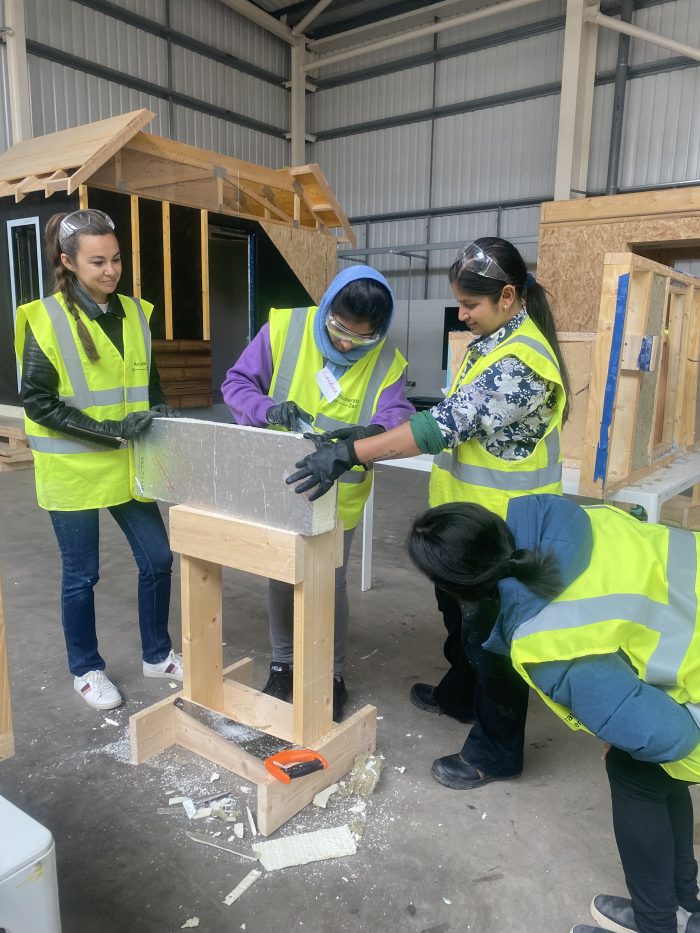
The different kinds of insulation available were PIR, wood fibre, fibre glass, sheep’s wool, polystyrene etc., and the delegates had to either use a saw or a cutter to cut the insulation board according to the frame measurements. They were then asked to apply an air tightness membrane using an industrial stapler and make the relevant openings for pipes and electric cables. Different kinds of tapes were used to ensure air tightness was achieved.
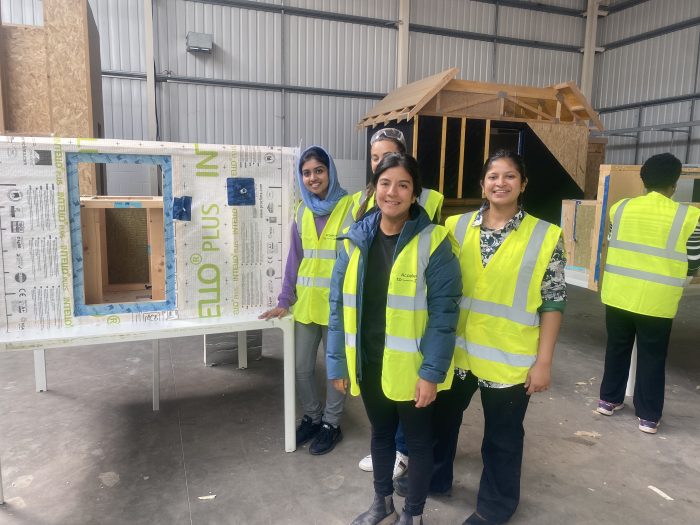
In the afternoon, Loraine Wood from BE-ST shared her own Passivhaus home building experience and explained how the five principles of Passivhaus i.e., highly insulated envelope, air tightness, triple glazed windows with maximum solar gain and shading, ventilation with heat recovery, and minimal thermal bridging were incorporated in her house.
The delegates had a guided factory tour where they learnt about different CNC manufacturing machines, CLT press, CNC Router and AI robotics equipment involved in sustainable construction practices.
A wikihouse sketchup session was conducted, where delegates were asked to explore the sketchup online dashboard of a building and answer a questionnaire which was followed by a demonstration of the use of virtual reality tools in digital designing, manufacturing, and construction. Louise Rogers from BE-ST shared her career journey so far and the different opportunities for women in the construction sector.
For the final activity, the delegates were split into teams to build a wikihouse using structural timber building blocks. The benefits of using wikihouse components is that the timber is cut to 0.1 mm precision and can be delivered to any site to be rapidly and accurately assembled by anyone irrespective of having any traditional construction skills.
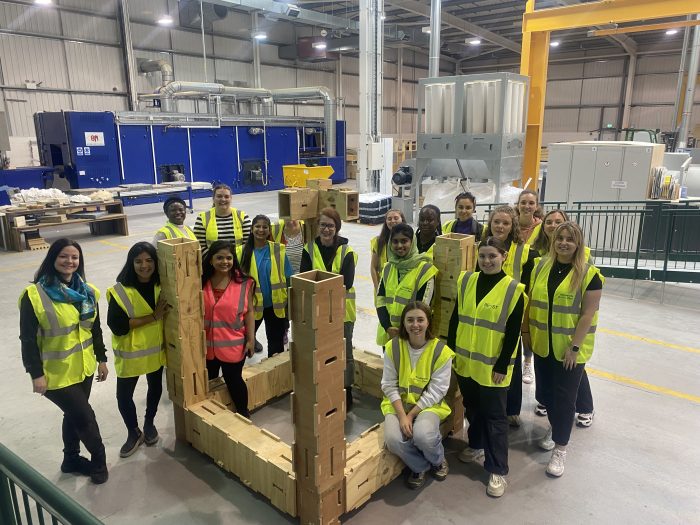
“
BE-ST is the launchpad to a zero-carbon built environment
The delegates were awarded with a digital badge for completing each of the online training modules and the low carbon construction upskilling programme as well.
About the experience of being a part of this course, Yashodhara said, “It was insightful and fun. It felt so inspiring being around so many women from different backgrounds and industries, who are strong, smart, and independent, and are working together towards achieving a zero-carbon construction future.”
Pure energy appreciates BE-ST and Equate Scotland’s efforts in organising this training course to upskill and reskill women in the latest low carbon construction techniques.
To know more about how Pure energy can help your business or home transition towards Net Zero by micro grid developments and low carbon energy solutions, contact us on +44 (0) 1382 657457 or email [email protected].
Feature image by Christina @ wocintechchat.com
Services (UK/International)